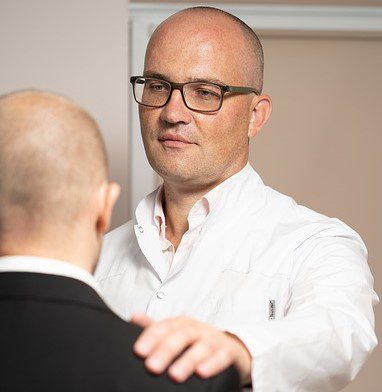Compassion [kuhm–pash-uhn]
noun
A feeling of deep sympathy and sorrow for another who is stricken by misfortune, accompanied by a strong desire to alleviate the suffering.
Compassion Corner is a series from Patient Worthy that will focus on the subject of compassion in the healthcare and rare disease space. In this series, we explore the role of compassion in this field and what it means for caregivers, patients, and others.

Dr. Andrew Grose, an orthopedic trauma specialist, was introduced to awareness through a fellowship at New York’s contemplative medicine Zen Center. In his report to KevinMD.com, he said that it has been the most rewarding experience of his entire career.
Dr. Grose acknowledges that skill, knowledge, and good judgment are essential to being a good doctor. Yet the other qualities, such as kindness, love, sensitivity, and attentiveness are just as important.
He adds that the system is broken. But Dr. Grose also expressed his feelings that he has not fulfilled his own goal of being a quality doctor. That he must live with the many times he should have been able to help more patients, residents, and nurses.
He further explains that our system disregards caring, which in his opinion should be foremost in a doctor’s practice. Dr. Grose suggests that the assumption that caring cannot be acquired and is a personal choice is representative of our current system.
He points out that healthcare workers are taught that compassion should be acquired individually, yet he feels that the system ignores the fact that doctors and other staff members are individuals. From his vantage point, he says that if someone drops out, there will always be another who will take over. Just as there will always be another patient to treat.
In conclusion, Dr. Grose advises his audience to first understand their own suffering and its creation and then decide how to manage it. With this in mind, doctors will be able to attend to their patients suffering with compassion.
Dr. Gross describes his work as tragic, joyful, sacred, and boring, but urgently needed. He admits that he cannot save every life or at times restore function, but he realizes that it is possible for him to relieve suffering, an ability for which he has searched for over thirty years. He can do this through contemplative medicine, which is his most important surgical skill.





